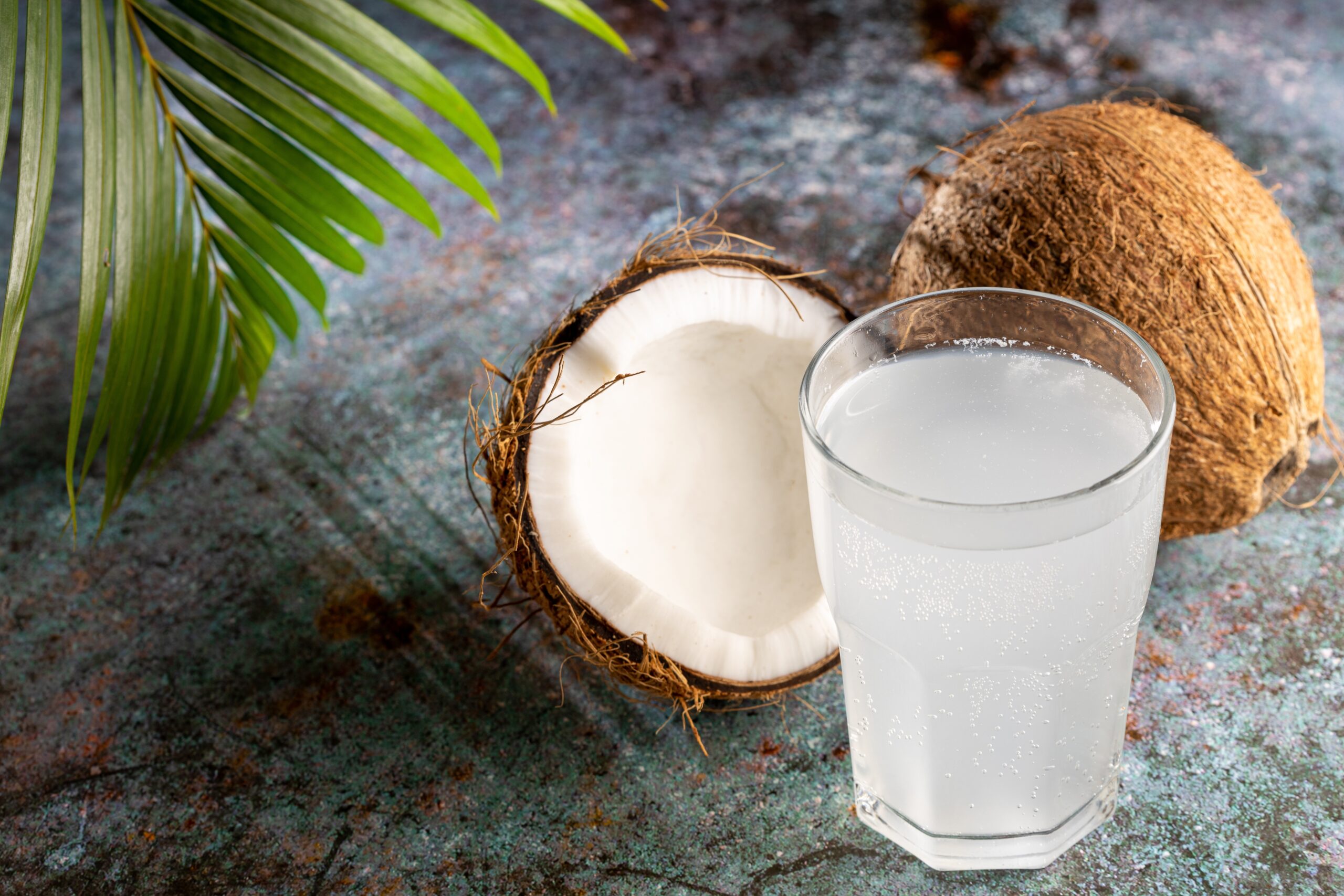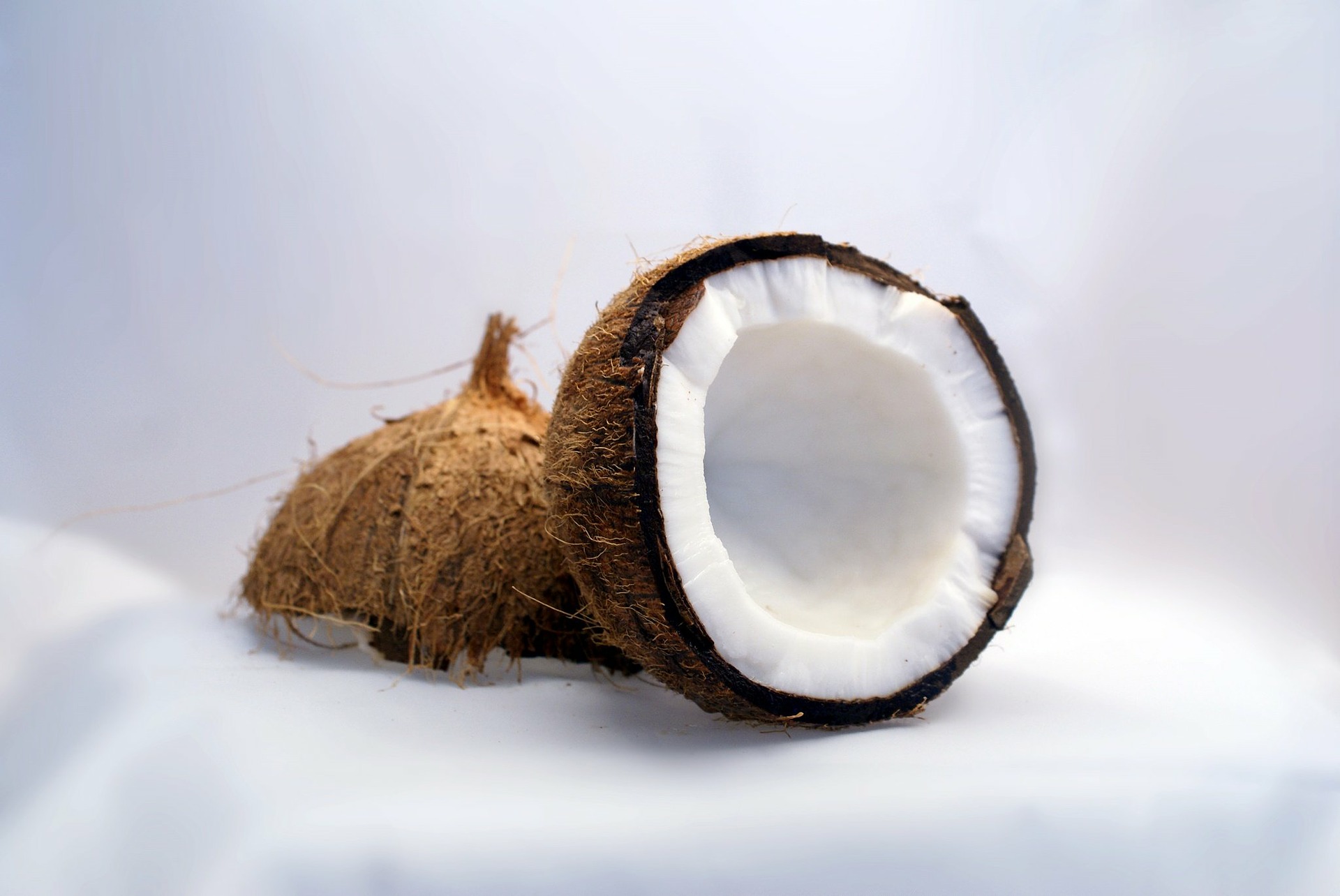

I have been asked many times – how to make coconut water or milk. The easiest way is to find a coconut – open it up and voila!! However, if you have no fresh young coconuts on hand; it may be as easy as your pantry. It is actually quite easy to make your own. Obviously, this is not as good as the real thing, but it comes a pretty close second.
Eastern View: From an Ayurvedic perspective, coconut has the following qualities…sweet, cooling, heavy and it balances Vata and Pitta, and increases Kapha in excess.
Coconut is a highly regarded food, with a predominantly sweet taste, it has a sweet post-digestive effect that balances vata. Although it is relatively heavy and difficult to digest, it is useful in small amounts to nourish and invigorate the body and promote contentment and calmness in the mind – due to its sweet taste.
Coconut is grounding and – a mixture of heavy, oily and sweet qualities to pacify Vata. A natural stress-buster and as Vatas are prone to reacting highly to stress, coconut will help ground any anxiety.
A natural cooling food, coconut water can be used throughout the summer to naturally cool. It improves electrolyte balance, combats inflammation and helps against summer fatigue. All in all great for Pittas too.
Western View: From a Western perspective, coconut is a gluten-free, alkaline food high in saturated fat and fibre. Many Vatas have digestive problems so are sensitive to gluten and need fats to combat their natural tendency towards dryness. It also contains protein and some important minerals – calcium, iron, potassium and magnesium. Due to its high fat content it is low GI and will decrease the overall GI of any meal when added.
Obesity is currently one of the biggest health problems in the world. While some people think obesity is only a matter of calories, others (myself included) believe that the sources of those calories are important too.
The American Journal of Clinical Nutrition states that the medium-chain triglycerides (MCTs) in coconut oil can increase how many calories you burn compared to the same amount of other fats . The European Journal of Clinical Nutrition reports on one study that found that 15-30 grams of MCTs per day increased 24 hour energy expenditure by 5%, totalling about 120 calories per day.
Almost 50% of the fatty acids in coconut oil is the 12-carbon Lauric Acid. When lauric acid is digested, it forms a substance called monolaurin.
The Journal Antimicrobial Agents and Chemotherapy show that both lauric acid and monolaurin can kill harmful pathogens like bacteria, viruses and fungi. Vatas need all the immune support they can get as when under stress, it’s their immune system that tends to get compromised.
For example, these substances have been shown to kill the bacteria Staphylococcus Aureus (a very dangerous pathogen) and the yeast Candida Albicans, a common source of yeast infections in humans.
Bottom Line: The fatty acids and breakdown products in coconut can kill harmful pathogens, potentially helping to prevent infections.
Get more of our top techniques for staying cool and soothing inflammation in our 5 Day Anti-inflammatory Cleanse. Download free today!
In health,


The Holistic HIghway integrates traditional Western medical practices with Ayurveda medicine, creating a focus on prevention through nutrition, diet, and exercise; use of the latest genetic testing and other diagnostic techniques; and prescribed combinations of botanical medicines, supplements, therapeutic diets, detoxification programs, or stress-management techniques.

Integrative Health Expert | Ayurveda Practitioner | Author | Speaker
Kerry is a globally recognized leader in integrative medicine and the science of health known as Ayurveda. She is passionate about raising awareness of the need for a change in contemporary medicine that focuses on patient empowerment and a health-based (rather than disease-based) medical system.
Kerry is connected with The University of Pittsburgh Center for Integrative Medicine and remains a pioneer in the field of integrative medicine where she has developed a personalized system to manage chronic disorders by incorporating fundamental changes in diet, behavior, and stress while focusing on genetics.
This individualized program is so successful that many of her clients have achieved maximum healing and vitality after years of chronic problems!
More to Explore
Contact
Disclaimer
The sole purpose of all the website content is to educate and provide information about Integrative Health, Genetics and Ayurveda.This information is not intended for use in the diagnosis, treatment, cure. or prevention of any disease.
Stay Connected